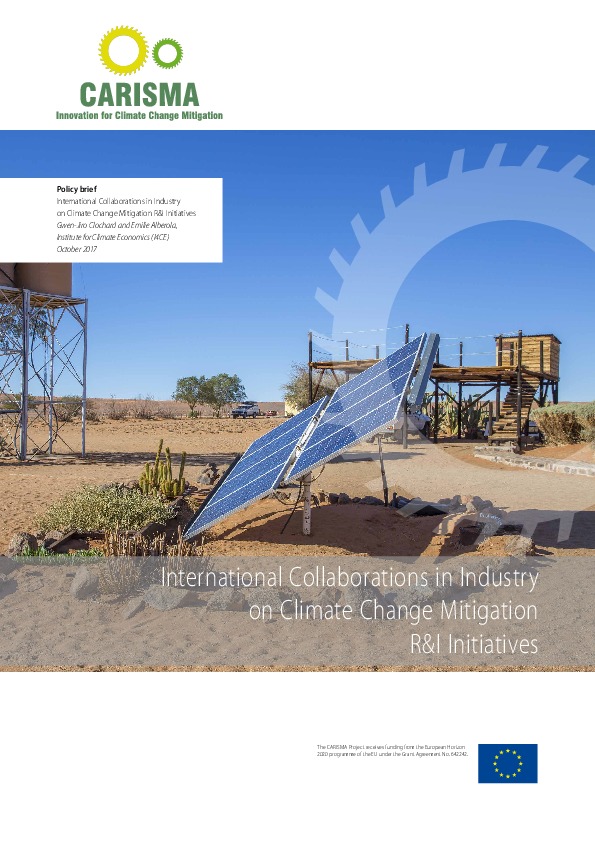International Collaborations in Industry on Climate Change Mitigation R&I Initiatives : a new policy brief from CARISMA project
As international collaborative research and innovation (R&I) initiatives have the potential to advance climate change mitigation technology transfer across borders, in particular in developing countries, some industries have developed various international R&I collaborative initiatives to facilitate deployment of low-carbon technologies and practices.
In the CARISMA project, such initiatives were mapped in a background report, and discussed in a workshop involving stakeholders from government, industry, academia, and international organisations. The main conclusion of the mapping is that these collaborations can be widely different in form, governance, duration, or funding, and a one-size-fits-all approach for stimulating such R&I cooperation on mitigation does not exist: the optimal policy framework varies depending on sector and on actions. However, R&I collaboration for climate between industries needs to be encouraged by a coherent and long-term policy framework.
This Policy Brief summarises general lessons and identifies 8 recommendations for stimulating international collaborations on R&I among industries for policy makers and for industry:
- Supporting low-carbon innovation and technology development with appropriate policies
- Facilitating the building of the international platforms as knowledge communities
- Easing the access of collaboration members to fund R&I activities
- Transforming climate burden into business opportunities and developing the spirit of collaboration
- Among members of R&I collaboration, being clear on roles and interactions of each member, on expected output (during the project) and impact (beyond the project)
- Helping to structure the political agenda on innovation and international approaches
- Monitoring outcomes and impacts of the R&I initiative with performance indicators
- Sharing knowledge and best practices of R&I initiatives through promotion, capacity building, and international business platforms.
CARISMA (H2020 EU project) website
